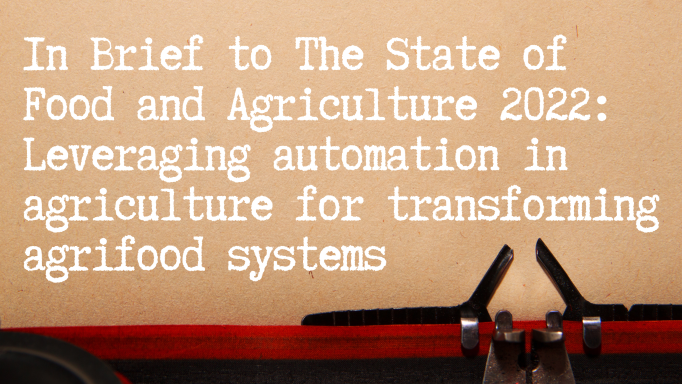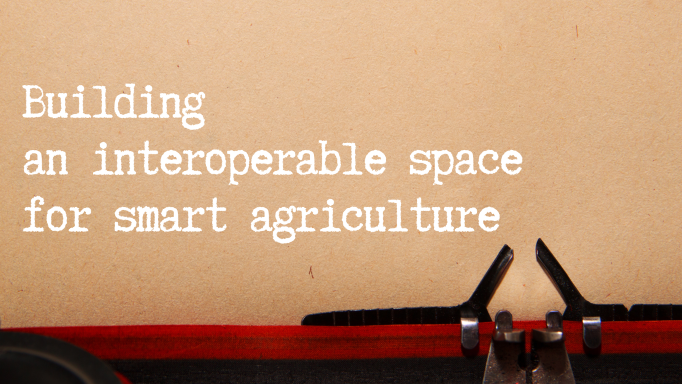
This FAO recent report dives deep into the reality of agriculture as the sector is undergoing profound technological change at an accelerating pace. New technologies, unimaginable just a few years ago, are rapidly emerging. The report highlights the potential benefits of agricultural automation that are manifold and able to contribute to the transformation of agrifood systems, making them more efficient, productive, resilient, sustainable, and inclusive. Automation can increase labour productivity and profitability in agriculture. Recent solutions involving precision agriculture and the adoption of small-scale equipment can improve both environmental sustainability and resilience to climate and other shocks. Thanks to these numerous benefits, agricultural automation can also contribute to achieving several of the Sustainable Development Goals (SDGs).![]()

This FAO recent report dives deep into the reality of agriculture as the sector is undergoing profound technological change at an accelerating pace. New technologies, unimaginable just a few years ago, are rapidly emerging. The report highlights the potential benefits of agricultural automation that are manifold and able to contribute to the transformation of agrifood systems, making them more efficient, productive, resilient, sustainable, and inclusive. Automation can increase labour productivity and profitability in agriculture. Recent solutions involving precision agriculture and the adoption of small-scale equipment can improve both environmental sustainability and resilience to climate and other shocks. Thanks to these numerous benefits, agricultural automation can also contribute to achieving several of the Sustainable Development Goals (SDGs).![]()

The digital transformation in agriculture introduces new challenges in terms of data, knowledge, and technology adoption due to critical interoperability issues, and also challenges regarding the identification of the most suitable data sources to be exploited and the information models that must be used. DEMETER (Building an Interoperable, Data-Driven, Innovative and Sustainable European Agri-Food Sector) addresses these challenges by providing an overarching solution that integrates various heterogeneous hardware and software resources and enables the seamless sharing of data and knowledge throughout the agri-food chain. This paper introduces the main concepts of DEMETER and its reference architecture to address the data sharing and interoperability needs of farmers.![]()



